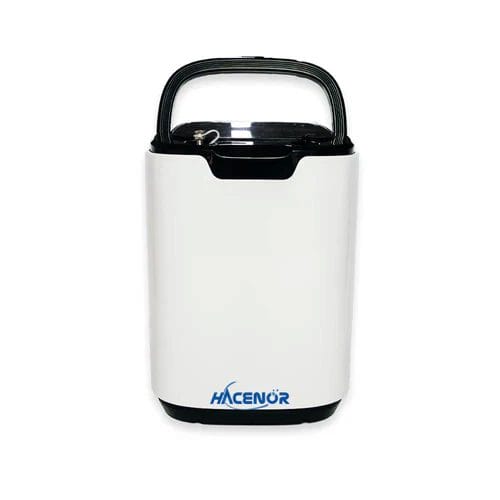[Last updated December 16, 2024]

With another tax season quickly approaching, it is time to determine tax-deductible expenses you’ve incurred. Identifying potential tax deductions is important because it helps seniors save more money during retirement. Still, knowing which expenses are deductible can be tricky. Here, we’ll explain what a tax deduction is and then outline some tax-deductible expenses for seniors, such as those for medical, dental, and long-term care costs.
What is a tax deduction?
A tax deduction is a form of tax incentive that reduces the amount of an individual’s taxable income, reducing their tax obligations. Many available deductions might apply to you as an older adult. Among the most advantageous for seniors include deductions for medical, dental, and long-term care costs.
What is the difference between a tax deduction and a tax credit?
As explained above, tax deductions reduce the overall amount of income you are taxed on. Tax credits work by directly reducing the taxes you owe and may increase any tax refund the government owes you. Certain credits can get you a refund even if you do not owe income tax.
To better understand the difference between tax credits and deductions, consider this example: A $1,000 tax deduction reduces your taxable income by $1,000. If you’re in the 22% tax bracket, this saves you $220 in taxes. However, a $1,000 tax credit reduces your actual tax bill by the full $1,000, regardless of your tax bracket. This makes credits generally more valuable than deductions of the same amount.
Standard deduction vs. itemized deductions
Each tax year, Americans can choose between taking the standard deduction and itemizing deductions through Internal Revenue Service (IRS) Schedule A. The standard deduction is a set dollar amount that reduces the income on which the taxpayer is taxed. Itemized deductions are specific expenses the taxpayer can use to reduce their taxable income.
Itemizing rather than taking the standard deduction can benefit taxpayers with significant out-of-pocket expenses. Some costs are considered tax-deductible expenses, which we will discuss below. Anyone choosing to itemize their medical expenses must document each of these charges throughout the year.
You’ll want to consult a trusted tax professional about whether taking the standard deduction or itemizing your deductions is the best choice for your situation.
Tax-deductible medical expenses
Many medical costs can be tax-deductible expenses. Per the IRS, medical expenses include “the costs of diagnosis, cure, mitigation, treatment, or prevention of disease, and for the purpose of affecting any part or function of the body.” Taxpayers, including older adults, may only deduct medical and dental expenses exceeding 7.5% of their annual adjusted gross income. The IRS defines adjusted gross income as your total gross income minus adjustments like retirement contributions, alimony payments, or student loan interest.
You may claim expenses for yourself and your spouse or dependents if you were married or provided support to them when the services were rendered or when you paid for them.
Some examples of deductible medical expenses include but are not limited to:
- Annual physical exams.
- Artificial teeth.
- Artificial limbs.
- Ambulance services.
- Home improvement and modifications for medical reasons, including ramps, handrails, grab bars, kitchen cabinets, and equipment. Rules about capital expenses determine how much of the home improvement costs you can deduct.
- Prescription medication.
- Hospital stays.
- Fees paid to doctors, surgeons, chiropractors, psychiatrists, psychologists, dentists, traditional medical practitioners, and acupuncturists.
- Money used to pay for medical or long-term care insurance premiums.
Are dental costs tax-deductible expenses?
Yes, some dental care costs can be considered tax-deductible expenses. These items are categorized under medical expenses for tax purposes. Seniors are permitted to deduct preventive and alleviative dental care, including the following:
- X-rays and fillings.
- Dentures, extractions, and treatment of dental ailments.
- Application of sealants.
- Fluoride treatments to prevent tooth decay.
Are insurance premium costs tax-deductible expenses?
The IRS considers insurance premiums as deductible medical expenses under certain circumstances. Multiple conditions apply to a taxpayer’s ability to deduct insurance premiums, so it’s important to work with a tax professional to understand and include these expenses within the tax code laws.
What insurance premiums can’t be included?
Not all insurance premiums may be deducted. You cannot claim the following premiums you pay for yourself, your spouse, or your dependents:
- Health or long-term care insurance if you pay premiums with tax-free distributions from any retirement plan made directly to your insurance company that would otherwise be included in income.
- Car insurance premiums that provide medical coverage for people injured in an accident involving your vehicle.
- Life insurance premiums.
- Policies that provide for loss of earnings, limb, sight, or life.
- Insurance policies that pay for a set number of weeks of a hospital stay if you are sick or injured.
Long-term care deductible expenses
Some or all of the costs of long-term care paid out of pocket may be tax-deductible expenses.
Examples of claimable long-term care expenses can include:
- Your primary residence.
- The cost of nursing home or assisted living facility care.
- The price of enrolling in an adult day care center.
Long-term care insurance gives older adults additional coverage that helps fill in the gaps to pay for care not covered by health insurance, such as for services that assist them with activities of daily living. Long-term care insurance expenses can be included in your unreimbursed medical expenses on your taxes. The cost of your premiums must exceed 7.5% of your annual adjusted gross income.
Self-employed individuals have a special advantage regarding long-term care insurance premiums. They can deduct 100% of their out-of-pocket premiums, although they are still subject to age-based premium limits.
Here are the current age and deduction limits:
- Seniors aged 61 to 70 can claim up to $4,710.
- Seniors aged 71 and older can claim up to $5,880.
If a cost is not deemed necessary for the care of an older person, it may not be tax deductible, even if the service is covered by long-term care insurance. Examples of nondeductible services include:
- Life insurance policies.
- Funeral expenses.
- Nonprescription medications.
- Cosmetic surgeries.
Tax deductions for medical expenses can save seniors a lot of money. It’s important to know which expenses apply and the eligibility requirements for taking these deductions. Work with a trusted tax professional to know that your taxes are being filed properly and that you are maximizing your deductions.








